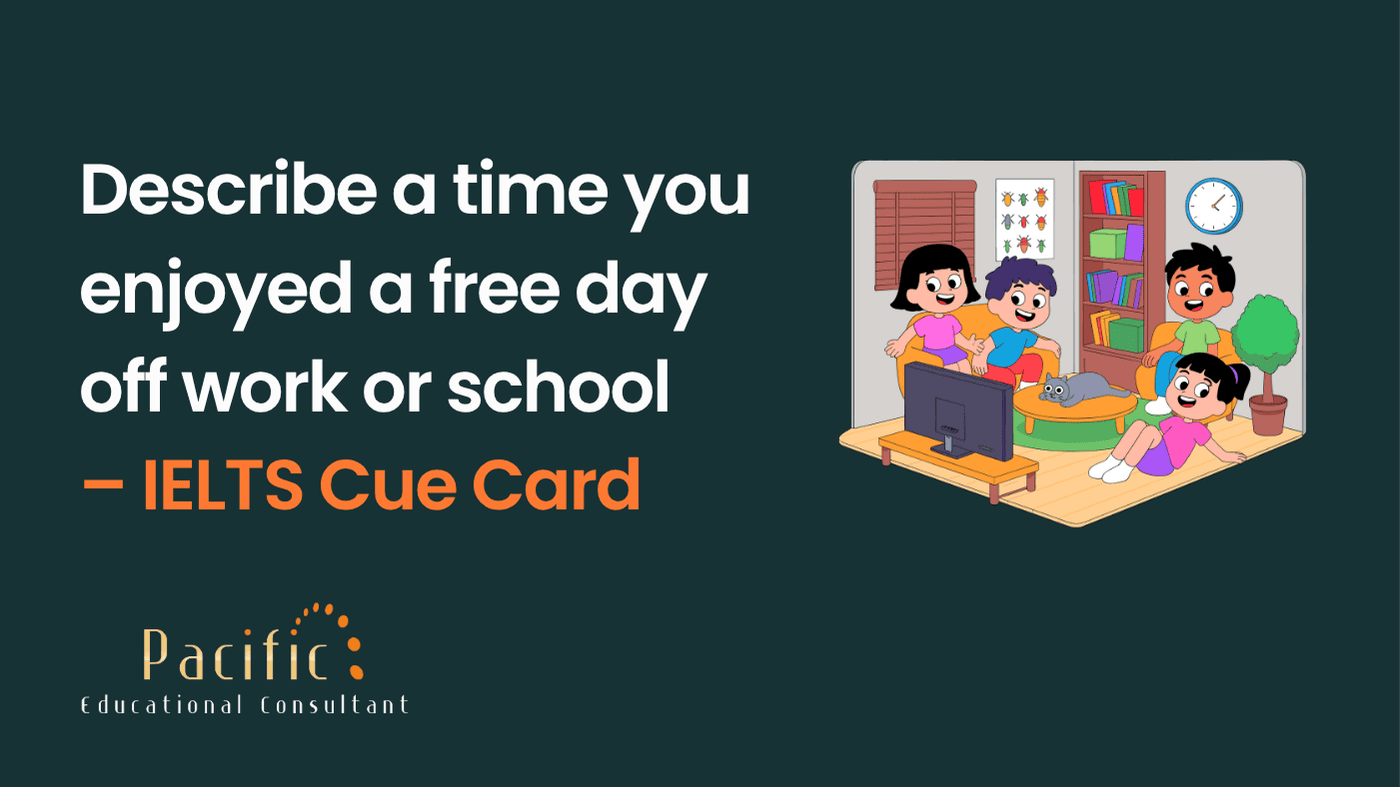


Talk about a time when you gave advice to someone" is a commonly asked topic in the IELTS Speaking Cue Card section. Candidates are expected to speak for one to two minutes on the given subject. This task is designed to assess various aspects of a candidate’s communication skills, including fluency, confidence, vocabulary usage, and overall language proficiency.
Enhance your speaking skills by practicing sample answers for the popular IELTS cue card topic: “Talk about a time when you gave advice to someone.” This task is part of IELTS Speaking Part 2, where you are given one minute to prepare and then speak for one to two minutes. This segment evaluates your fluency, confidence, vocabulary, and overall command of the English language.
When speaking on the topic "Talk about a time when you gave advice to someone", follow the order below:
Who did you give advice to?
What was the advice?
Why did you give the advice?
How was it helpful and how did he/she feel about it?
As humans, we naturally tend to offer advice when someone we care about is facing difficulties or confusion. While some people appreciate guidance, others may not follow it. Personally, I often find myself offering suggestions to close friends when they seek support.
I usually don’t give unsolicited advice. However, one day my close friend called me sounding quite distressed. I noticed she was facing a dilemma, so I asked her what was wrong. She told me she was struggling to choose between pursuing her passion or sticking to her commitments.
Her name is Priya, and we've been friends for over 12 years. She has always been passionate about dance but currently works in a private firm to support herself financially. She had received a new opportunity to join a dance academy but was unsure whether to take the risk.
I listened carefully and then advised her to follow her passion. I explained how rare such opportunities are and that following what she truly loves could bring her long-term satisfaction, even if the path wasn’t initially easy. I encouraged her to at least give it a try.
She was clearly torn when she called. But after our conversation, she felt more confident and clear-headed. By the end of our talk, she had made the decision to accept the opportunity. She later thanked me for helping her make the right choice.
It always feels great when someone you care about trusts you enough to seek your advice. I was genuinely happy to see Priya move forward with clarity and confidence.
Sometimes, getting a fresh perspective or seeking advice from someone experienced can prevent poor decisions. I’d like to talk about a time I offered helpful advice to my sister.
My sister and I talk frequently, and we share almost everything. During many of our phone calls, she often expressed concern over putting her career on hold. One day, I decided to sit her down and have an honest conversation.
My sister got married two years ago and has a daughter now. Before marriage, she was very career-focused. But after settling down and taking on household responsibilities, her professional life took a back seat. She was clearly unhappy, and I could sense her frustration.
I reminded her of how ambitious she used to be and told her that motherhood doesn’t mean abandoning personal goals. I encouraged her to talk to her family, find support, and restart her career step by step.
She really took my words to heart. With her family's support, she eventually resumed her career. Today, she is thriving professionally while also managing her family life beautifully. She thanked me for motivating her and called it a life-changing conversation.
Life is all about balance. I believe everyone deserves a chance to pursue their dreams without sacrificing other important aspects of life. Seeing my sister happy and fulfilled made me feel proud.
After completing your cue card response in Part 2, the examiner may ask a few related follow-up questions. Here are some commonly asked ones and suggested answers
Parents typically offer guidance on various aspects of life, including academics, friendships, food habits, and moral values. Since a child’s behavior is shaped by how they’re raised, it’s natural for parents to play a vital role in instilling good habits and helping their children make sound decisions.
Experts provide advice based on their deep knowledge and practical experience. For instance, when you consult a doctor, they analyze your symptoms, diagnose the issue, and give you well-informed advice on the best treatment or precautions to take. Their guidance is often data-driven and reliable.
Teenagers are at a delicate stage where they are more vulnerable to external influence. Parents often advise them to choose friends wisely, avoid negative peer pressure, and maintain healthy boundaries. Some even prefer to meet their children’s friends to better understand their background and behavior.
Seeking advice before making important choices can prevent costly mistakes. Discussing your options with someone experienced can provide new insights, highlight potential risks, and guide you toward the right direction. It’s always beneficial to hear different perspectives before deciding.
In my opinion, while independence is important, very young children may not have the experience to make the right choices. It’s essential that parents, teachers, and guardians guide them during crucial stages of their life. That being said, gradually allowing them to make minor decisions helps build confidence and responsibility.

New Zealand Student Visa Update: Work Limit Now 25 Hours/Week from 3 Nov 2025

Describe a family member who you want to work with in the future - IELTS Cue Card

Describe a noisy place you have been to - IELTS Cue Card

Describe a time you enjoyed a free day off work or school – IELTS Cue Card

Bachelor in Business Economics (BBE)

BE IT Full Form: Complete Guide to Eligibility, Syllabus, Fees, and Career Scope

Describe a water sport you would like to try in the future - IELTS Cue Card

Describe a plan that you had to change recently - IELTS Cue Card

CBSE Class 10 & 12 Date Sheet 2026: Complete Timetable & Study Planner

Describe a sport that you really like - IELTS Cue Card